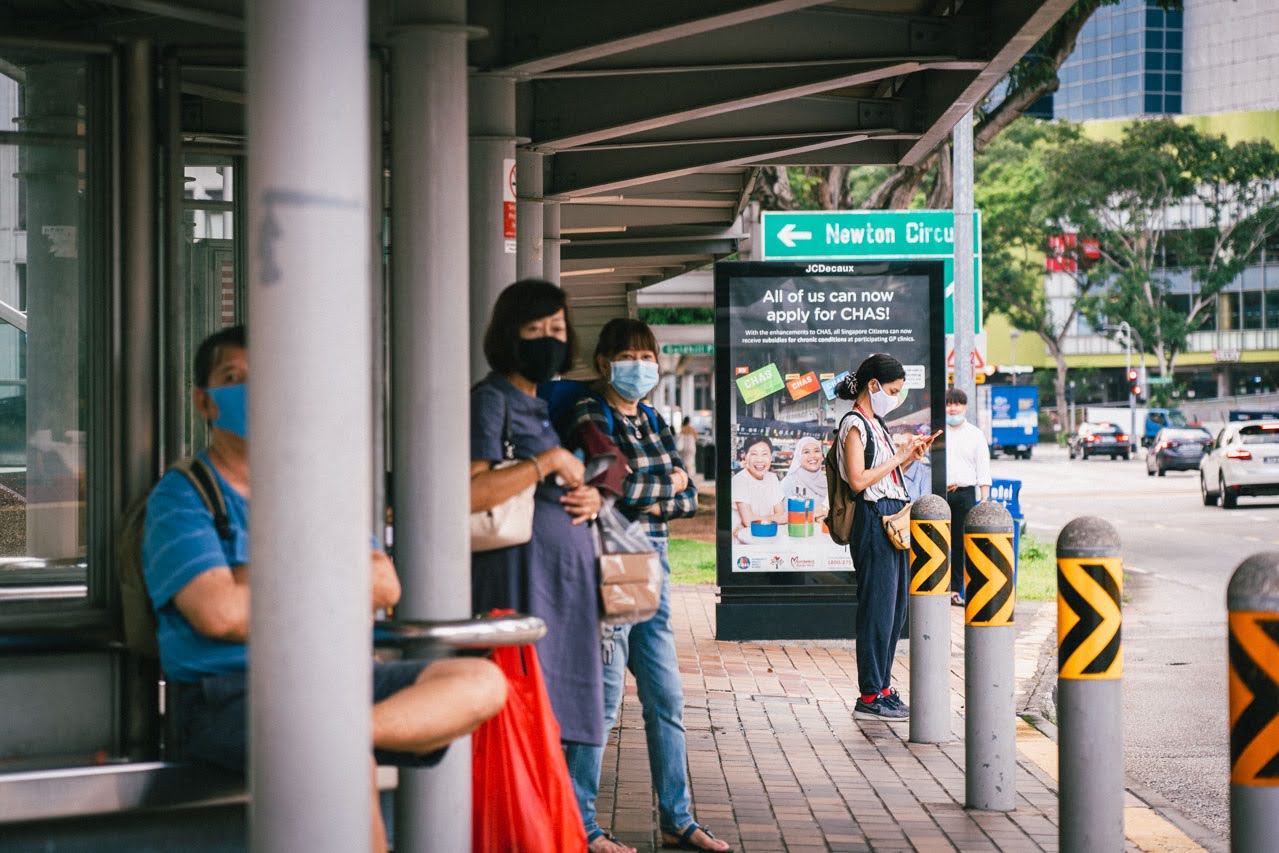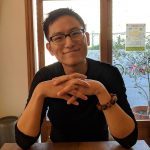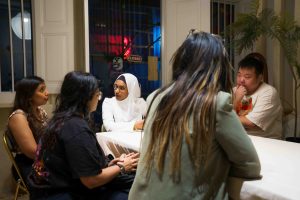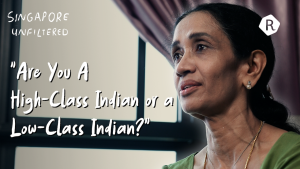2020 was a Golden Age for snitching in Singapore.
With the events surrounding Covid-19 and GE2020, never before in Singapore’s 55-year history, had there been as many opportunities to inform on our neighbours and turn in our family members to the police. There were also more digital tools at our disposal to catch fellow Singaporeans with their pants down (see: NUS culture).
Never mind that this pandemic should’ve taught us that nobody is perfect, and that we could all learn to be more understanding of each other’s shortcomings. Instead, in 2020, Singaporeans elevated snitching to an art form.
But don’t take my word for it. Before we close the chapter on 2020, let’s take one final look at how snitching culture has flourished in Singapore, and why this local predilection will become more relevant (and dangerous) as we embark on the new year.
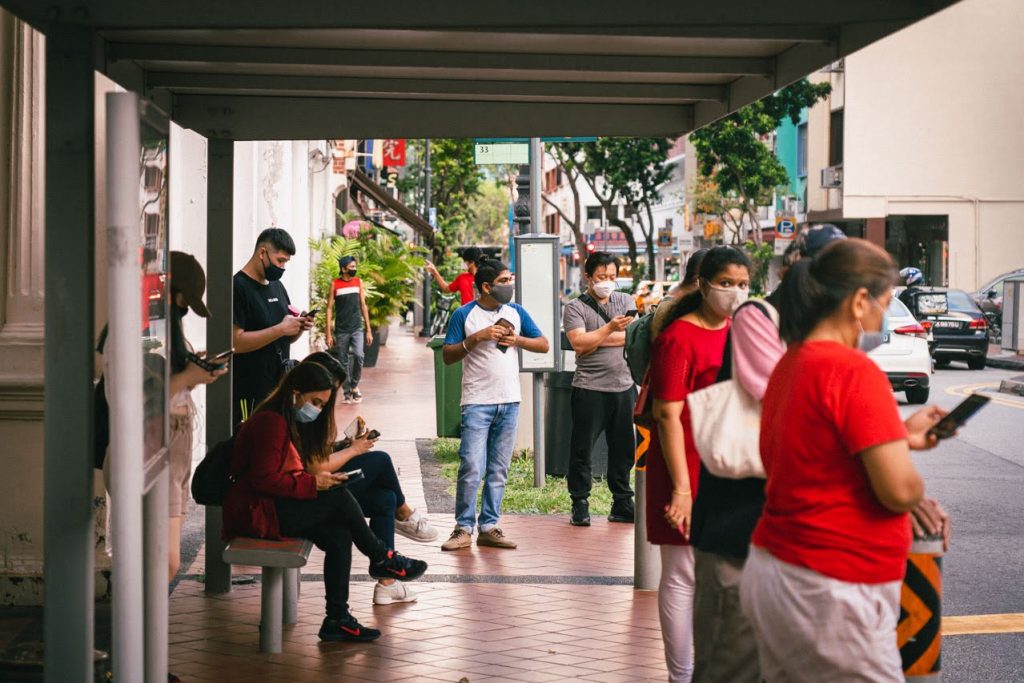
1. The Circuit Breaker: Sinkie Pwn Sinkie, Covidiots Pwn Covidiots
In the weeks leading up to the circuit breaker, online sheriffs who no one appointed started shaming people and posting footage of them without their consent on public Facebook groups—ostensibly in the name of public health.
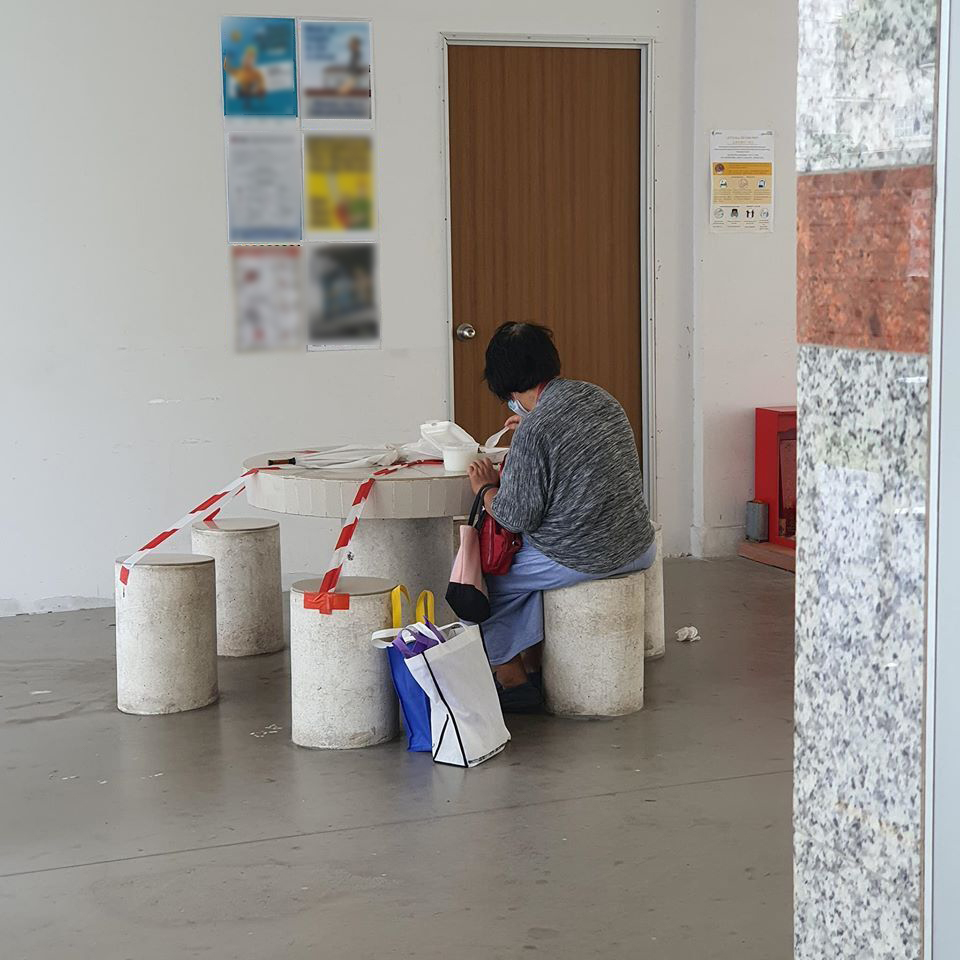
According to these galaxy brains, the service that they were providing was better information for the police, to facilitate the doling out of jail-time and fines.
Just so we’re clear: they were performing this public service at a time when their fellow Singaporeans’ mental health and livelihoods were being jeopardised by the circuit breaker.
But hey, nobody’s perfect. Let’s just file this unfortunate and time-wasting saga away as growing pains in a civil society. After the year we’ve been through, I hope we’ve all learned a thing or two about forgiveness and empathy.
What this Covidiot episode did reveal, however, was how easily Singaporean society could devolve into panic, finger-pointing and snitching at a time when national unity was called for.
2. GE2020: ‘Hallo, Polis? Someone is Talking About Race Again.’
At RICE, we’ve covered many examples in 2020 of police reports that were filed because someone had the audacity to talk about race. During GE2020, the Raeesah Khan incident was the most prominent example.
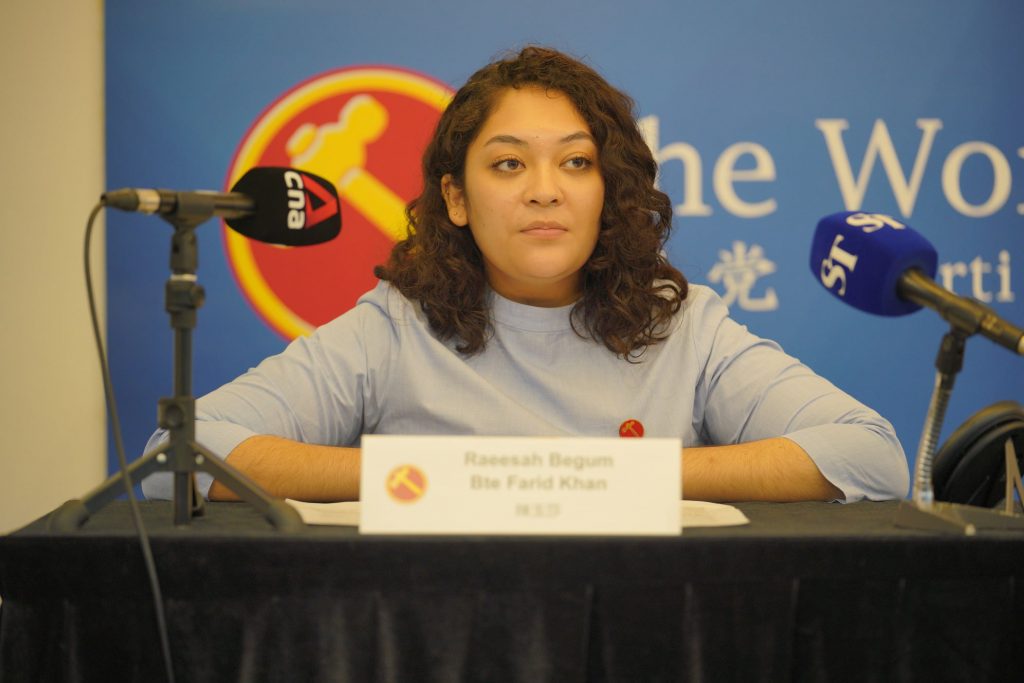
In her apology, Khan herself admitted to being ‘insensitive’ in her remarks on social media, as she expressed genuine frustrations about racial injustice in Singapore. However, any adult with a basic level of reading comprehension will know that her intention was not to sow ‘social unrest or division,’ but to raise awareness of an important issue.
Just when it looked like Singapore was finally ready to have a broader national conversation about race, Singaporean snitches came out of the woodwork to ruin it for the rest of us by filling out police reports like TOTO lottery tickets.
All of this was done in the name of preserving “racial harmony.”
Before you read me the 1965 riot act, I am aware of the history and the precarious balance to which the free speech laws in Singapore are there to protect. This is not at issue here.
The issue is that some Singaporeans seem a bit overeager to run to the authorities whenever their feelings get hurt. Instead of, you know, acting like rational and mature adults.
It’s a lot easier to file police reports through a veil of tears than actually trying to understand why some minorities in Singapore may have different experiences than you. Perhaps we might learn to be more tolerant when they choose not to express their frustration in sweet and dulcet tones.
Filing police reports against already marginalised groups in Singapore for hurting your feelings isn’t social responsibility—that’s just pettiness.
3. Phase 2: Self-Appointed SDAs Threaten to Shut Down Struggling F&B Businesses
There were a number of incidents last year where F&B operators had been caught between uncooperative customers and a random passerby armed with a smartphone threatening to report them to the authorities.
Here’s just one example where one KPO Singaporean with absolutely no context and a chip on his shoulder decided to butt in, making a difficult situation worse.
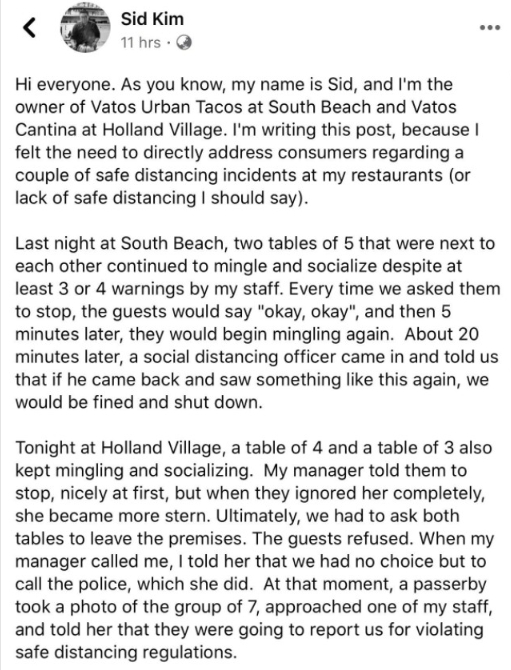
For the record: this doesn’t mean there weren’t F&B operators who brazenly flouted the Phase 2 rules. That’s the reason why real SDAs and enforcement personnel exist. Because they are trained to handle and de-escalate such situations.
What they didn’t need was your dumb ass armed with a phone, and absolutely no context, to complicate an already complicated situation.
4. Liew family v. Parti Liyani case: All Your CCTV Are Belong to Us
The 2020 Snitches of the Year award has to go to the Liew family, who according to the Law Minister Shanmugam’s own statement displayed a ‘cavalier attitude’ in reporting their domestic helper Parti Liyani to the police for theft.
How else can we explain why the Liews thought it was perfectly within their rights to call the authorities, then fail to adequately account for and document the items that were allegedly stolen?
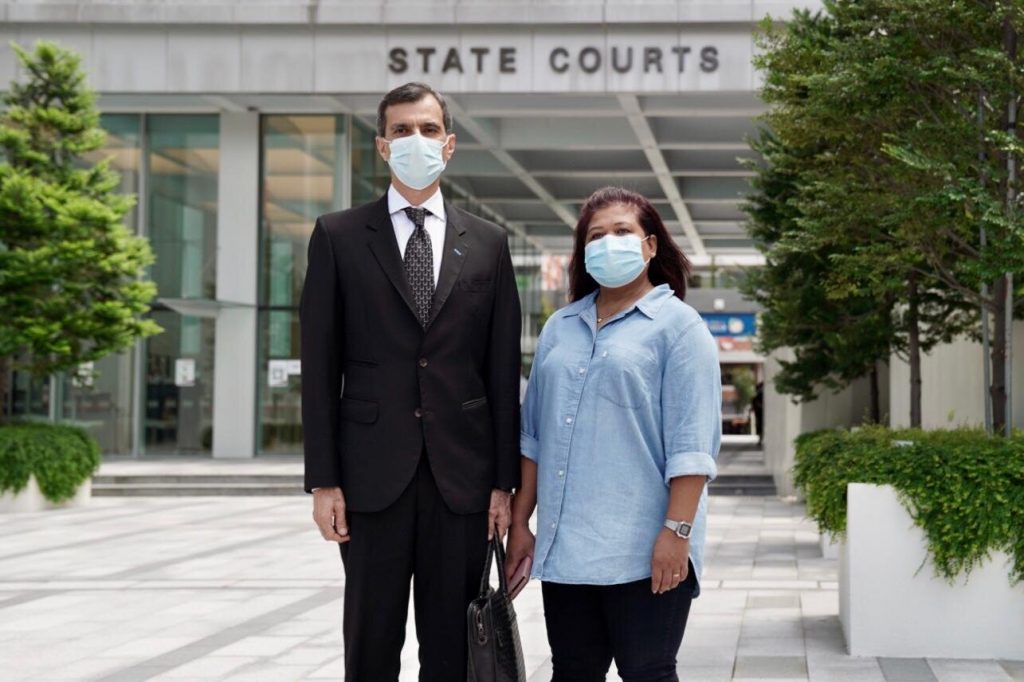
While justice eventually prevailed in Parti’s acquittal in the High Court, a judicial ruling which—and I can’t stress this enough—should not be impinged upon or questioned, Parti’s case was the most prominent example of how Singapore’s snitching culture extended all the way to the upper echelons of society.
On the subject of FDWs: I’ve noticed that for some families, Singapore’s CCTV surveillance culture extends into the family living room, mainly as a means to monitor their foreign domestic helper. As a newcomer to Singapore, I learned about this practice when many of these cameras were hacked in October and the footage shared online, including on pornography sites.
On one hand, this is terrible and wrong. But if I can be frank, it’s also a bit of poetic justice.
I get it. Some families, understandably, want to make sure that their children and elderly are being properly cared for by their helpers when they’re away at work. But I hope I don’t need to explain why this is still a creepy and dystopian practice.
It also raises more questions than it answers:
In what other workplace, outside of sensitive industries like defense, would constant CCTV surveillance be acceptable behaviour for an employer? Would a Singaporean subject themselves to the same treatment?
And if families are truly justified in thinking that FDWs might steal their valuables without surveillance, then why would they entrust such a person with the care of their own children and elders?
What does this say about the institution of FDWs in Singapore?
Why Singapore’s Snitching Culture Matters in 2021
I’m well aware that the trading-in of freedom and privacy for security isn’t something that’s unique to Singapore. It’s a phenomenon that’s happening globally. The restrictions around the pandemic has only accelerated this trend.
But as Singapore enters 2021, there are vulnerabilities that are unique to Singaporean society. This includes our deferential attitude towards authority, and the general acceptance of surveillance that extends beyond the public sphere.
And finally, for a certain segment of the population, there is an overzealous attitude towards enforcing the rules, and seeing things in black and white, when increasingly, everything in the world is turning shades of grey.
In this context, technology is a double-edged sword. As Facebook and the 2016 U.S. election demonstrated, tools that were meant to facilitate greater connection can be abused for political and social influence. Data that was originally intended for identifying Covid clusters, could fall into the wrong hands.
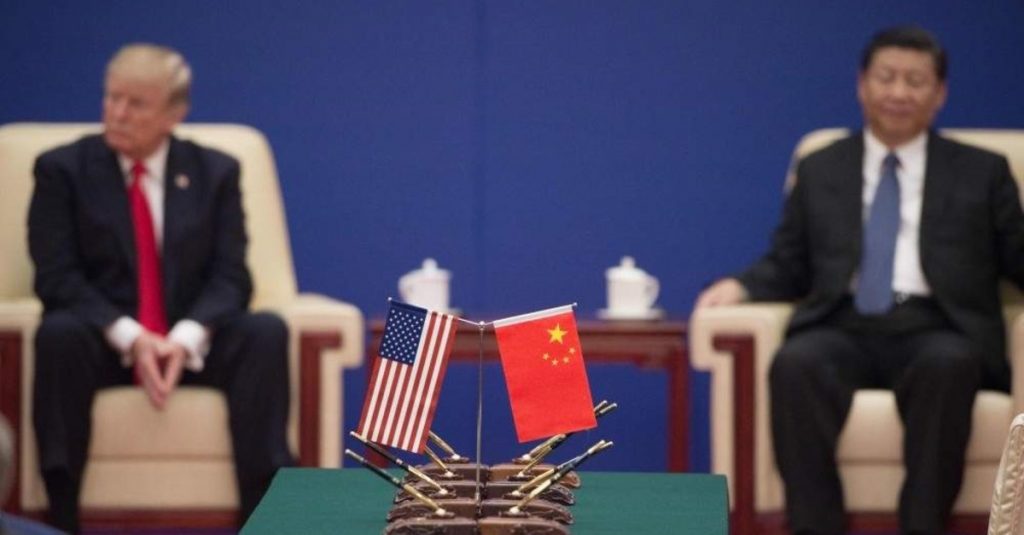
In 2021, as Chinese tech companies like Alibaba, Tencent, and Bytedance move in to make Singapore its regional headquarters in Southeast Asia, the risks and opportunities are acute.
It’s the reason why Singapore PM Lee Hsien Loong published a 6,000+ word history lesson this past summer on Foreign Affairs, titled ‘The Endangered Asian Century,’ which cautioned against the U.S-China trade war.
In his essay, LHL skillfully danced around his other unspoken thesis: that it would not be in Singapore’s interests for the United States to withdraw from Southeast Asia, as Singapore and its ASEAN partners would run the risk of becoming pseudo-vassal states under a Chinese hegemon.
With Trump and Covid-19 (hopefully) receding into the background in 2021, this is a development that RICE will be monitoring closely as we officially enter the new decade.
Turning over a new leaf in 2021? Write to us at community@ricemedia.co.

